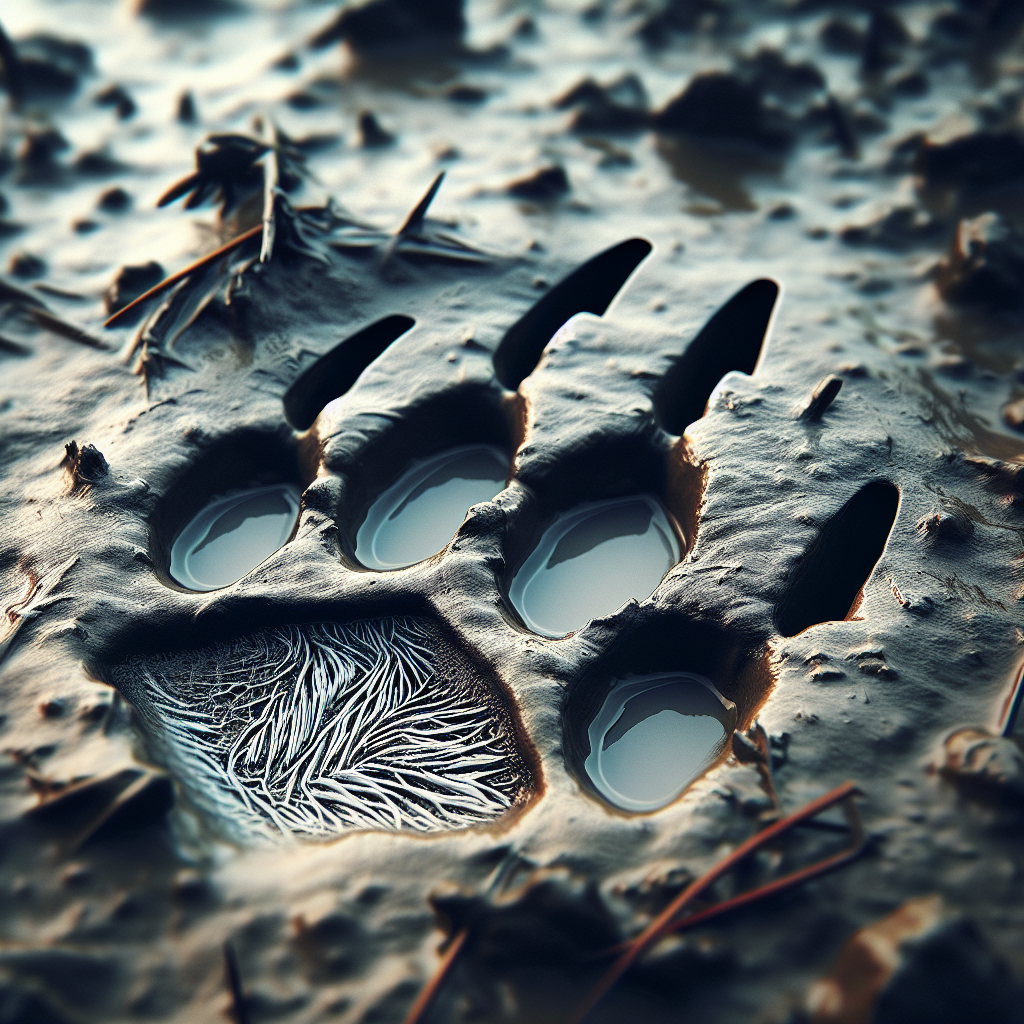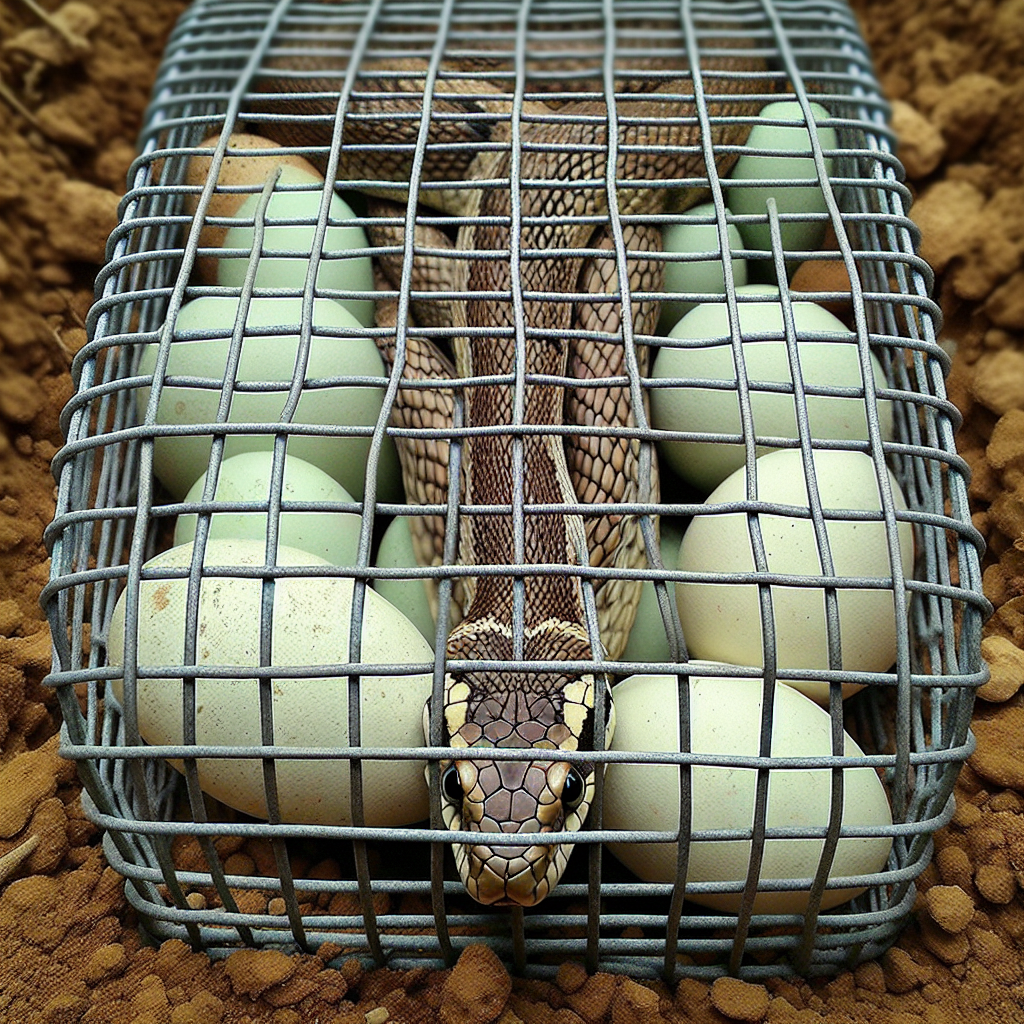If you ever stumble upon evidence of a predator attack, it’s crucial to know what immediate actions to take for your safety. Whether you live in a wilderness area or simply enjoy exploring nature, encountering signs of a predator can be alarming. In this article, we will cover the essential steps you should follow if you discover evidence of a predator attack, ensuring you can confidently handle the situation and protect yourself from any potential danger.
Securing the Area
Assessing Safety
The first priority when coming across evidence of a predator attack is to assess your own safety. Make sure you are at a safe distance from the scene and away from any potential danger. If necessary, seek a secure location nearby to observe the situation and avoid compromising the evidence. Remember, your well-being is crucial, so ensure you are in a safe position before proceeding.
Calling for Help
Once you have secured your own safety, the next step is to call for help. Immediately contact the appropriate authorities, such as the police or emergency services, and provide them with accurate information about the situation. It is important to convey the urgency and seriousness of the situation to ensure a swift response. Do not hesitate to contact the authorities, as they are trained to handle these types of situations.
Not Disturbing the Crime Scene
It is crucial to refrain from disturbing the crime scene when you come across evidence of a predator attack. Avoid touching or moving anything within the area, as it can potentially tamper with important evidence. Be mindful of your surroundings and ensure that others do not interfere with the scene as well. By preserving the integrity of the crime scene, you are helping the investigators gather essential evidence for their investigation.
Documenting the Scene
Taking Photographs
One of the key steps in documenting the scene is taking clear and detailed photographs. Use your mobile phone or camera to capture the entire area, focusing on any relevant evidence or potential clues. Make sure to take wide shots to provide a context for the investigators, as well as close-up shots to capture any intricate details. Photographs can play a vital role in preserving the evidence and reconstructing the scene later in the investigation.
Recording Video
In addition to photographs, recording video can also be a valuable tool in documenting the scene of a predator attack. By capturing the surroundings and any potential movements or sounds, video footage can provide additional information that photographs may not capture. Ensure that you maintain a steady hand and focus on essential details while recording. Video documentation can supplement the photographs and provide a more comprehensive overview of the area.
Writing Observations
Alongside visual documentation, it is important to write down your observations of the scene. Note any peculiar or unusual details, such as the presence of specific objects, suspicious behavior, or anything that might be relevant to the investigation. Include details about the time and date of your discovery, as well as any potential witnesses you may have encountered. These written observations will aid investigators in understanding the situation and can serve as crucial evidence in the case.
Preserving Evidence
Avoiding Contamination
Preserving the integrity of the evidence is paramount in a predator attack case. To avoid contamination, refrain from touching or disturbing any items within the crime scene. Even seemingly insignificant actions, such as stepping on footprint impressions, can compromise valuable evidence. It is important to be aware of your actions and take great care not to contaminate the scene in any way. By maintaining the scene in its original state, you are ensuring that investigators can gather accurate evidence.
Protecting Fragile Clues
Sometimes, evidence in predator attack cases may include fragile clues that require special care. Items such as hair strands, fibers, or even footprints can be easily damaged if not handled properly. If you come across such delicate evidence, make sure to take extra precautions. Avoid touching the evidence directly and consider using gloves or other protective measures to prevent contamination or damage. Inform the authorities about these fragile clues so that they can be handled with the necessary expertise.
Collecting Physical Samples
Depending on the circumstances, there might be a need to collect physical samples for further analysis. These samples could include items like bloodstains, saliva, or DNA. If you find any such samples, it is vital to refrain from attempting to collect them yourself. Instead, inform the investigators so that they can take proper measures to preserve and collect these samples using their specialized techniques. Collecting physical evidence should only be done by professionals to avoid compromising its reliability.
Notifying Authorities
Contacting the Police
After securing the area, documenting the scene, and preserving evidence, it is crucial to contact the police as soon as possible. The police are trained to handle such situations and have the expertise needed to investigate predator attacks. Provide them with all the information you have gathered, including details about the evidence, your observations, and any potential witnesses. Cooperate fully with the police and follow their instructions to ensure a thorough investigation.
Providing Detailed Information
When notifying the authorities about the predator attack, it is important to provide them with as much detail as possible. Describe the scene accurately, recount your observations, and provide any relevant information about the incident or the potential assailant. The more specific and precise your information, the better equipped the investigators will be to handle the situation. Remember, every detail can make a significant difference in the investigation.
Cooperating with Investigators
Once the authorities arrive and take over the investigation, it is essential to fully cooperate with them. Answer their questions truthfully and provide any additional information they may require. It is natural to feel overwhelmed or under stress, but maintaining a calm and cooperative attitude can greatly assist the investigators in their efforts. Work with the investigators to the best of your ability, aiding them in every step of the process.
Protecting Personal Safety
Maintaining Caution
While dealing with evidence of a predator attack, it is crucial to maintain a high level of caution. Be aware of your surroundings and any potential threats. Avoid putting yourself in harm’s way and always prioritize your personal safety. If you feel unsafe or threatened in any way, seek refuge in a secure area and alert the authorities immediately. Your safety should always be the top priority.
Staying in a Group
When encountering evidence of a predator attack, it is advisable to avoid being alone. Whenever possible, try to stay with a group or find someone you trust to accompany you. Being in a group can provide both emotional support and added security. Additionally, it may discourage potential predators who are more likely to target individuals who are alone. Remember, there is strength in numbers, and staying together can potentially prevent further harm.
Informing Others
To ensure personal safety, it is important to inform others about the situation. Notify friends, family, or colleagues about what you have witnessed or discovered. Share information about the predator attack, the evidence, the authorities you have contacted, and any other relevant details. By keeping others informed, they can be vigilant and offer assistance or support if needed. Together, we can collectively enhance safety and potentially prevent similar incidents in the future.
Seeking Medical Attention
Addressing Physical Injuries
If you or anyone involved in the discovery of evidence of a predator attack has sustained physical injuries, seeking immediate medical attention is essential. Attend to any wounds, cuts, or bruises by cleaning them with mild antiseptics and applying sterile dressings. It is important to remember that certain injuries may not be immediately visible, so even if you feel physically unharmed, it is wise to consult a medical professional to ensure there are no underlying injuries.
Evaluating Psychological Trauma
Coming across evidence of a predator attack can be a traumatic experience, and it is vital to assess and address any psychological trauma that may have occurred. Fear, anxiety, or post-traumatic stress can manifest even if there are no physical injuries. Reach out to mental health professionals or counselors who specialize in trauma to discuss your experience and seek guidance on coping strategies. Prioritize your emotional well-being and seek the support you need during this challenging time.
Following Medical Advice
When seeking medical attention, it is important to follow the advice and recommendations of healthcare professionals. If further tests, treatments, or follow-up appointments are suggested, ensure that you diligently adhere to their instructions. Medical professionals are trained to assess and address injuries and trauma effectively, so trust their expertise and guidance. By actively participating in your own recovery, you increase the likelihood of a swift and successful physical and emotional healing process.
Supporting Witnesses
Offering Emotional Support
Witnesses of a predator attack can experience significant emotional distress and trauma. Offering emotional support is crucial to help them cope with the aftermath of such a traumatic event. Listen attentively, provide reassurance, and avoid judgment. Allow witnesses to share their experiences and feelings at their own pace. Empathy and understanding can be incredibly comforting and help individuals feel heard and supported during this difficult time.
Recording Witness Statements
Obtaining detailed witness statements is vital for the investigation process. If you are in a position to do so, ask witnesses to provide formal or recorded statements regarding what they saw or heard. Encourage them to include specific details that could potentially assist the investigation. Ensure that witness statements are given voluntarily and without coercion. Be respectful of their privacy and emotions while gathering the necessary information.
Identifying Potential Witnesses
While supporting witnesses, it is important to identify any additional potential witnesses who may have seen or heard something relevant to the attack. Encourage witnesses to assist in this process by recalling anyone present in the vicinity during the incident. Document their contact information or ask them to provide statements directly to the authorities. Expanding the pool of potential witnesses can enhance the investigation’s scope and increase the chances of obtaining crucial information.
Gathering Additional Information
Searching for Other Clues
Apart from the initial evidence you have encountered, it is worth conducting a thorough search for any additional clues that may have been overlooked. Look for anything out of the ordinary, such as discarded objects, footprints, or signs of struggle. Be cautious not to disturb the scene further, but do your best to observe and document any additional evidence that could be relevant to the investigation. Remember to inform the authorities about any new discoveries.
Noting Surrounding Details
In addition to focusing on the immediate crime scene, take note of any surrounding details that may be helpful for the investigation. These details might include the general location, nearby landmarks, or potential escape routes. Providing the authorities with this information can assist them in narrowing down their search for the predator and help establish a better understanding of the entire incident. Every piece of information, no matter how seemingly insignificant, can be valuable.
Interviewing Others
If you come across individuals who were present in the area at the time of the attack or who may have valuable information, consider interviewing them. Approach them with sensitivity and respect, explaining the situation and the importance of their testimony. Ask open-ended questions to encourage detailed responses and actively listen to their accounts. These interviews can provide additional perspectives and shed light on important aspects of the incident that may have been overlooked.
Maintaining Privacy
Limiting Information Sharing
To protect the integrity of the investigation and the privacy of those involved, it is crucial to limit the sharing of information related to the predator attack. Avoid discussing sensitive details or divulging specific evidence with individuals who are not directly involved in the case or who do not have a legitimate need to know. By maintaining confidentiality, you ensure that the investigation proceeds smoothly and that the privacy of those affected is respected.
Protecting Personal Identifiers
When discussing the predator attack or sharing information about the incident, take care to protect personal identifiers. Refrain from identifying victims, witnesses, or suspects by their real names in any public or non-official conversations. Preserving anonymity safeguards individuals’ privacy and prevents unnecessary harm or prejudice. Use only the necessary information when speaking about the incident, focusing on what is relevant to ensuring justice and safety.
Avoiding Public Speculation
Speculating about the predator attack publicly can hinder the investigation and potentially cause harm to those involved. Avoid engaging in public discussions or social media debates regarding the incident. Share only verified information from official sources or authorities. Public speculation can lead to misinformation and rumors that can complicate the investigation and disrupt the lives of those affected. Respect the privacy and well-being of all parties involved by refraining from unwarranted speculation.
Supporting the Investigation
Providing Follow-up Information
As the investigation progresses, additional information or details may come to your attention. Cooperate fully with the authorities by sharing any follow-up information you believe could be relevant to the case. Any new insights, observations, or potential leads can assist the investigation and contribute to a better understanding of the predator attack. Stay in touch with the investigators and be responsive to their requests for additional information as needed.
Cooperating with Legal Procedures
In case legal proceedings arise from the predator attack investigation, it is important to cooperate fully with the legal procedures. Respond to any requests for testimony, evidence, or other forms of support promptly and truthfully. Follow the guidance of legal professionals and maintain transparency throughout the process. Your cooperation can help ensure justice is served and provide closure for the victims and their families.
Seeking Professional Assistance
If you find yourself overwhelmed or struggling to cope with any aspect of the predator attack situation, consider seeking professional assistance. Mental health professionals, such as therapists or counselors, are experienced in providing support to individuals impacted by trauma. Reach out to these professionals for guidance, counseling, or therapy to help navigate the emotional and psychological challenges that may arise throughout the investigation and legal proceedings. Remember, you do not have to face these difficulties alone.
In conclusion, if you find evidence of a predator attack, securing the area, documenting the scene, and preserving evidence are essential steps to take. Contacting the police, providing detailed information, and cooperating with investigators are crucial in assisting the ongoing investigation. Protecting personal safety, seeking medical attention, and supporting witnesses are important considerations for your well-being and the well-being of others involved. Gathering additional information, maintaining privacy, and supporting the investigation further contribute to ensuring justice is served. By following these immediate actions and seeking professional assistance as needed, you can play a vital role in addressing a predator attack with care and diligence.




